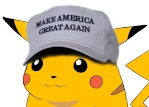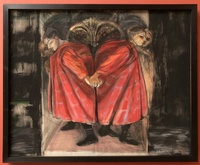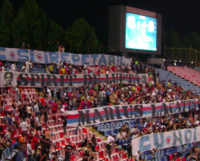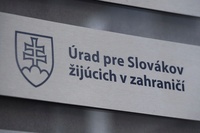https://www.nytimes.com/2019/01/28/technology/iphones-apple-china-made.html
A Tiny Screw Shows Why iPhones Won’t Be ‘Assembled in U.S.A.’
By Jack Nicas
Jan. 28, 2019
SAN FRANCISCO — Despite a trade war between the United States and China and past admonishments from President Trump “to start building their damn computers and things in this country,” Apple is unlikely to bring its manufacturing closer to home.
A tiny screw illustrates why.
In 2012, Apple’s chief executive, Timothy D. Cook, went on prime-time television to announce that Apple would make a Mac computer in the United States. It would be the first Apple product in years to be manufactured by American workers, and the top-of-the-line Mac Pro would come with an unusual inscription: “Assembled in USA.”
But when Apple began making the $3,000 computer in Austin, Tex., it struggled to find enough screws, according to three people who worked on the project and spoke on the condition of anonymity because of confidentiality agreements.
In China, Apple relied on factories that can produce vast quantities of custom screws on short notice. In Texas, where they say everything is bigger, it turned out the screw suppliers were not.
Tests of new versions of the computer were hamstrung because a 20-employee machine shop that Apple’s manufacturing contractor was relying on could produce at most 1,000 screws a day.
The screw shortage was one of several problems that postponed sales of the computer for months, the people who worked on the project said. By the time the computer was ready for mass production, Apple had ordered screws from China.
The challenges in Texas illustrate problems that Apple would face if it tried to move a significant amount of manufacturing out of China. Apple has found that no country — and certainly not the United States — can match China’s combination of scale, skills, infrastructure and cost.
In China, you will also find one of Apple’s most important markets, and over the last month the risks that come with that dependence have become apparent. On Jan. 2, Apple said it would miss earnings expectations for the first time in 16 years, mostly because of slowing iPhone sales in China. On Tuesday, the company is expected to reveal more details about its financial results for the most recent quarter and its forecast for the coming year.
The company could face more financial pressure if the Trump administration places tariffs on phones made in China — something the president has threatened to do.
Apple has intensified a search for ways to diversify its supply chain, but that hunt has homed in on India and Vietnam, according to an Apple executive who asked not to be named because the executive was not authorized to speak publicly. The company’s executives are increasingly worried that its heavy dependence on China for manufacturing is risky amid the country’s rising political tensions with the United States and unpredictability, this person said.
“The skill here is just incredible,” Mr. Cook said at a conference in China in late 2017. Making Apple products requires state-of-the-art machines and lots of people who know how to run them, he said.
“In the U.S., you could have a meeting of tooling engineers and I’m not sure we could fill the room,” he said. “In China, you could fill multiple football fields.”
Kristin Huguet, an Apple spokeswoman, said the company was “an engine of economic growth in the United States” that spent $60 billion last year with 9,000 American suppliers, helping to support 450,000 jobs. Apple’s Texas manufacturer, Flextronics, did not respond to requests for comment.
Mr. Cook helped lead Apple’s shift to foreign manufacturing in 2004, a move that cut costs and provided the enormous scale necessary to produce some of history’s best-selling tech products.
Apple contracted much of the work to enormous factories in China, some stretching miles and employing hundreds of thousands of people who assemble, test and package Apple products. That assembly includes parts made around the world — from Norway to the Philippines to Pocatello, Idaho — that are shipped to China.
Mr. Cook often bristles at the notion that iPhones are Chinese-made. Apple points out that Corning, at a factory in Kentucky, makes many iPhone screens and that a company in Allen, Tex., makes laser technology for the iPhones’ facial-recognition system.
Mr. Cook has also disputed that cheap labor is the reason Apple is still in China. But it doesn’t hurt. The minimum wage in Zhengzhou, China, home of the world’s biggest iPhone factory, is roughly $2.10 an hour, including benefits. Apple said the starting pay for workers assembling its products there was about $3.15 an hour. Compensation for similar jobs in the United States is significantly higher.
While it was one of Apple’s most powerful computers, the American-made Mac Pro also turned out to be one of its most expensive.
Chinese suppliers shipped their components to Texas. But in some cases, the Texas team needed new parts as designs changed, and engineers who were tasked with designing the computer found themselves calling machine shops in central Texas.
That is how they found Stephen Melo, the owner and president of Caldwell Manufacturing in Lockhart. Employees of Flextronics, the company hired by Apple to build the computers, in turn hired Caldwell to make 28,000 screws — though they would have liked more.
When Mr. Melo bought Caldwell in 2002, it was capable of the high-volume production Apple needed. But demand for that had dried up as manufacturing moved to China. He said he had replaced the old stamping presses that could mass-produce screws with machines designed for more precise, specialized jobs.
Mr. Melo thought it was ironic that Apple, a leader in offshore manufacturing, had come calling with a big order. “It’s hard to invest for that in the U.S. because that stuff is purchased very cheaply overseas,” he said.
He made do with his new machines, although he could not make the exact screws Apple wanted. His company delivered 28,000 screws over 22 trips. Mr. Melo often made the one-hour drive himself in his Lexus sedan.
A former Apple manager who spoke on the condition of anonymity said the Flextronics team had also been far smaller than what he typically found on similar Apple projects in China. It was unclear exactly why the project was understaffed, the manager said, speculating that it was because American workers were more expensive.
The manager said similar Apple jobs in China would include a roomful of people working to ensure that all materials were in place for production. In Texas, it was one worker, who often seemed overwhelmed, the manager said. As a result, materials were regularly out of place or late, contributing to delays.
Another frustration with manufacturing in Texas: American workers won’t work around the clock. Chinese factories have shifts working at all hours, if necessary, and workers are sometimes even roused from their sleep to meet production goals. That was not an option in Texas.
“China is not just cheap. It’s a place where, because it’s an authoritarian government, you can marshal 100,000 people to work all night for you,” said Susan Helper, an economics professor at Case Western Reserve University in Cleveland and the former chief economist at the Commerce Department. “That has become an essential part of the product-rollout strategy.”
Ms. Helper said Apple could make more products in the United States if it invested significant time and money and relied more on robotics and specialized engineers instead of large numbers of low-wage line workers. She said government and industry would also need to improve job training and promote the development of a supply-chain infrastructure.
But, she added, there is a low chance of all that happening.
Apple still assembles Mac Pros at the factory on the outskirts of Austin, in part because it has already invested in complicated and custom machines. But the Mac Pro has been a slow seller, and Apple has not updated it since its introduction in 2013.
In December, Apple announced that it would add up to 15,000 workers in Austin, just miles from the Mac Pro plant. None of the new jobs are expected to be in manufacturing.
Ћина-Средње Краљевство

- Guest
- Post n°26
 Re: Ћина-Средње Краљевство
Re: Ћина-Средње Краљевство
Kačio sam već:

- Posts : 13817
Join date : 2016-02-01
- Post n°27
 Re: Ћина-Средње Краљевство
Re: Ћина-Средње Краљевство
Јанош Винету wrote:Амерички производ, штампана плоча дизајнирана у Америци, софтвер у Америци, главни чипови у Америци, све се производи у Америци
Obrati pažnju na to šta se sve proizvodi u Kini i Hong Kongu ili kod bližih (Tajvan, Južna Koreja, Japan) i malo daljih komšija (Indonezija, Indija, Singapur, Malezija, Vijetnam, Tajland).
https://www.lifewire.com/where-is-the-iphone-made-1999503Some of the suppliers of key or interesting parts for the iPhone 5S, 6, and 6S and where they operate, included:
Accelerometer: Bosch Sensortech, based in Germany with locations in the U.S., China, South Korea, Japan, and Taiwan
Audio chips: Cirrus Logic, based in the U.S. with locations in the U.K., China, South Korea, Taiwan, Japan, and Singapore
Battery: Samsung, based in South Korea with locations in 80 countries
Battery: Sunwoda Electronic, based in China
Camera: Qualcomm, based in the U.S. with locations in Australia, Brazil, China, India, Indonesia, Japan, South Korea, and more than a dozen locations through Europe and Latin America
Camera: Sony, based in Japan with locations in dozens of countries
Chips for 3G/4G/LTE networking: Qualcomm
Compass: AKM Semiconductor, based in Japan with locations in the U.S., France, England, China, South Korea, and Taiwan
Glass screen: Corning, based in the U.S., with locations in Australia, Belgium, Brazil, China, Denmark, France, Germany, Hong Kong, India, Israel, Italy, Japan, South Korea, Malaysia, Mexico, Philippines, Poland, Russia, Singapore, South Africa, Spain, Taiwan, The Netherlands, Turkey, the U.K., and the United Arab Emirates
Gyroscope: STMicroelectronics. Based in Switzerland, with locations in 35 countries
Flash memory: Toshiba, based in Japan with locations in over 50 countries
Flash memory: Samsung
LCD screen: Sharp, based in Japan with locations in 13 countries
LCD screen: LG, based in South Korea with locations in Poland and China
A-series processor: Samsung
A-series processor: TSMC, based in Taiwan with locations in China, Singapore, and the U.S.
Touch ID: TSMC
Touch ID: Xintec. Based in Taiwan.
Touch-screen controller: Broadcom, based in the U.S. with locations in Israel, Greece, the U.K., the Netherlands, Belgium, France, India, China, Taiwan, Singapore, and South Korea
Wi-Fi chip: Murata, based in the U.S. with locations in Japan, Mexico, Brazil, Canada, China, Taiwan, South Korea, Thailand, Malaysia, Philippines, India, Vietnam, The Netherlands, Spain, the U.K., Germany, Hungary, France, Italy, and Finland

- Posts : 8530
Join date : 2014-10-28
Location : imamate of futa djallon
- Post n°28
 Re: Ћина-Средње Краљевство
Re: Ћина-Средње Краљевство
apple-ova dominacija je stvar nacionalnog interesa i prestiza. da US ozbiljno zanima da se bave nearshoring-om mogli bi da se pozabave time i mogo bi DOD da preuzme/dogovori stratesku saradnju sa tim caldwell i naprave od njih to sto treba apple-u. ili bi mogli da naprave jedan u meksiku. svakako imaju pare da to urade.buffalo bill wrote:Kačio sam već:
https://www.nytimes.com/2019/01/28/technology/iphones-apple-china-made.html
A Tiny Screw Shows Why iPhones Won’t Be ‘Assembled in U.S.A.’
nego problem je u nedostatku politickog autoriteta/subjektiviteta koji bi mogao da pokrene i koordinira takvu akciju odnosno njihova prepustenost lumpen-burzoaskom mindsetu elita gde se samo gleda profit na najkraci rok. a ne moze njihov 'obogati se brzo gico' mindset i ozbiljna trka sa kinom.
_____
i would like to talk here about The Last of Us on HBO... and yeah, yeah i know.. the world is burning but lets just all sit and talk about television. again - what else are we doing with ourselves ? we are not creating any militias. but my god we still have the content. appraising content is the american modus vivendi.. that's why we are here for. to absorb the content and then render some sort of a judgment on content. because there is a buried hope that if enough people have the right opinion about the content - the content will get better which will then flow to our structures and make the world a better place

- Posts : 8530
Join date : 2014-10-28
Location : imamate of futa djallon
- Post n°29
 Re: Ћина-Средње Краљевство
Re: Ћина-Средње Краљевство
The Pandemic and Contemporary Capitalism: An Interview with Tuo Li
_____
i would like to talk here about The Last of Us on HBO... and yeah, yeah i know.. the world is burning but lets just all sit and talk about television. again - what else are we doing with ourselves ? we are not creating any militias. but my god we still have the content. appraising content is the american modus vivendi.. that's why we are here for. to absorb the content and then render some sort of a judgment on content. because there is a buried hope that if enough people have the right opinion about the content - the content will get better which will then flow to our structures and make the world a better place

- Posts : 42412
Join date : 2012-02-12
Location : wife privilege
- Post n°30
 Re: Ћина-Средње Краљевство
Re: Ћина-Средње Краљевство
Daï Djakman Faré wrote:
nego problem je u nedostatku politickog autoriteta/subjektiviteta koji bi mogao da pokrene i koordinira takvu akciju odnosno njihova prepustenost lumpen-burzoaskom mindsetu elita gde se samo gleda profit na najkraci rok. a ne moze njihov 'obogati se brzo gico' mindset i ozbiljna trka sa kinom.
Па не, није то само њихов ментални склоп, банке их тако дресирају већ деценију-две, јер кога занима нешто три или више квартала у будућности, нама треба профит одмах, јер акционари очекују резултате у том року, иначе побегоше код других а ми ће да дувамо у прсте. Фирма у којој сам радио је уназађена за бар пола године јер је дигла око 500К$ кредита да премости до изласка нове верзије, која и јесте изашла кад је планирано, али је муштерије нису куповале очекиваном брзином. Значи фирма уради све како је договорено, и онда добије наређење од банке да смањи трошкове јединим познатим методом - отпусти четворицу од оних што сте запослили кад сте кредит узели.
Дресура, бато.
Држава улаже у неколико дугорочних технологија, или је бар улагала... отприлике док не испадне да од тога не може да се направи оружје којим би јебали кеву комуњарама, а онда полако оладе и пређу на следеће.
_____
with modem on UPS, I will have wife even when power goes down.
нама је потребно да ви будете на робији.

- Posts : 5745
Join date : 2016-01-26
- Post n°31
 Re: Ћина-Средње Краљевство
Re: Ћина-Средње Краљевство
Ово иде у букмаркове. Ово све појашњава.buffalo bill wrote:Kačio sam već:
https://www.nytimes.com/2019/01/28/technology/iphones-apple-china-made.html
A Tiny Screw Shows Why iPhones Won’t Be ‘Assembled in U.S.A.’
By Jack Nicas
Jan. 28, 2019
SAN FRANCISCO — Despite a trade war between the United States and China and past admonishments from President Trump “to start building their damn computers and things in this country,” Apple is unlikely to bring its manufacturing closer to home.
A tiny screw illustrates why.
In 2012, Apple’s chief executive, Timothy D. Cook, went on prime-time television to announce that Apple would make a Mac computer in the United States. It would be the first Apple product in years to be manufactured by American workers, and the top-of-the-line Mac Pro would come with an unusual inscription: “Assembled in USA.”
But when Apple began making the $3,000 computer in Austin, Tex., it struggled to find enough screws, according to three people who worked on the project and spoke on the condition of anonymity because of confidentiality agreements.
In China, Apple relied on factories that can produce vast quantities of custom screws on short notice. In Texas, where they say everything is bigger, it turned out the screw suppliers were not.
Tests of new versions of the computer were hamstrung because a 20-employee machine shop that Apple’s manufacturing contractor was relying on could produce at most 1,000 screws a day.
The screw shortage was one of several problems that postponed sales of the computer for months, the people who worked on the project said. By the time the computer was ready for mass production, Apple had ordered screws from China.
The challenges in Texas illustrate problems that Apple would face if it tried to move a significant amount of manufacturing out of China. Apple has found that no country — and certainly not the United States — can match China’s combination of scale, skills, infrastructure and cost.
In China, you will also find one of Apple’s most important markets, and over the last month the risks that come with that dependence have become apparent. On Jan. 2, Apple said it would miss earnings expectations for the first time in 16 years, mostly because of slowing iPhone sales in China. On Tuesday, the company is expected to reveal more details about its financial results for the most recent quarter and its forecast for the coming year.
The company could face more financial pressure if the Trump administration places tariffs on phones made in China — something the president has threatened to do.
Apple has intensified a search for ways to diversify its supply chain, but that hunt has homed in on India and Vietnam, according to an Apple executive who asked not to be named because the executive was not authorized to speak publicly. The company’s executives are increasingly worried that its heavy dependence on China for manufacturing is risky amid the country’s rising political tensions with the United States and unpredictability, this person said.
“The skill here is just incredible,” Mr. Cook said at a conference in China in late 2017. Making Apple products requires state-of-the-art machines and lots of people who know how to run them, he said.
“In the U.S., you could have a meeting of tooling engineers and I’m not sure we could fill the room,” he said. “In China, you could fill multiple football fields.”
Kristin Huguet, an Apple spokeswoman, said the company was “an engine of economic growth in the United States” that spent $60 billion last year with 9,000 American suppliers, helping to support 450,000 jobs. Apple’s Texas manufacturer, Flextronics, did not respond to requests for comment.
Mr. Cook helped lead Apple’s shift to foreign manufacturing in 2004, a move that cut costs and provided the enormous scale necessary to produce some of history’s best-selling tech products.
Apple contracted much of the work to enormous factories in China, some stretching miles and employing hundreds of thousands of people who assemble, test and package Apple products. That assembly includes parts made around the world — from Norway to the Philippines to Pocatello, Idaho — that are shipped to China.
Mr. Cook often bristles at the notion that iPhones are Chinese-made. Apple points out that Corning, at a factory in Kentucky, makes many iPhone screens and that a company in Allen, Tex., makes laser technology for the iPhones’ facial-recognition system.
Mr. Cook has also disputed that cheap labor is the reason Apple is still in China. But it doesn’t hurt. The minimum wage in Zhengzhou, China, home of the world’s biggest iPhone factory, is roughly $2.10 an hour, including benefits. Apple said the starting pay for workers assembling its products there was about $3.15 an hour. Compensation for similar jobs in the United States is significantly higher.
While it was one of Apple’s most powerful computers, the American-made Mac Pro also turned out to be one of its most expensive.
Chinese suppliers shipped their components to Texas. But in some cases, the Texas team needed new parts as designs changed, and engineers who were tasked with designing the computer found themselves calling machine shops in central Texas.
That is how they found Stephen Melo, the owner and president of Caldwell Manufacturing in Lockhart. Employees of Flextronics, the company hired by Apple to build the computers, in turn hired Caldwell to make 28,000 screws — though they would have liked more.
When Mr. Melo bought Caldwell in 2002, it was capable of the high-volume production Apple needed. But demand for that had dried up as manufacturing moved to China. He said he had replaced the old stamping presses that could mass-produce screws with machines designed for more precise, specialized jobs.
Mr. Melo thought it was ironic that Apple, a leader in offshore manufacturing, had come calling with a big order. “It’s hard to invest for that in the U.S. because that stuff is purchased very cheaply overseas,” he said.
He made do with his new machines, although he could not make the exact screws Apple wanted. His company delivered 28,000 screws over 22 trips. Mr. Melo often made the one-hour drive himself in his Lexus sedan.
A former Apple manager who spoke on the condition of anonymity said the Flextronics team had also been far smaller than what he typically found on similar Apple projects in China. It was unclear exactly why the project was understaffed, the manager said, speculating that it was because American workers were more expensive.
The manager said similar Apple jobs in China would include a roomful of people working to ensure that all materials were in place for production. In Texas, it was one worker, who often seemed overwhelmed, the manager said. As a result, materials were regularly out of place or late, contributing to delays.
Another frustration with manufacturing in Texas: American workers won’t work around the clock. Chinese factories have shifts working at all hours, if necessary, and workers are sometimes even roused from their sleep to meet production goals. That was not an option in Texas.
“China is not just cheap. It’s a place where, because it’s an authoritarian government, you can marshal 100,000 people to work all night for you,” said Susan Helper, an economics professor at Case Western Reserve University in Cleveland and the former chief economist at the Commerce Department. “That has become an essential part of the product-rollout strategy.”
Ms. Helper said Apple could make more products in the United States if it invested significant time and money and relied more on robotics and specialized engineers instead of large numbers of low-wage line workers. She said government and industry would also need to improve job training and promote the development of a supply-chain infrastructure.
But, she added, there is a low chance of all that happening.
Apple still assembles Mac Pros at the factory on the outskirts of Austin, in part because it has already invested in complicated and custom machines. But the Mac Pro has been a slow seller, and Apple has not updated it since its introduction in 2013.
In December, Apple announced that it would add up to 15,000 workers in Austin, just miles from the Mac Pro plant. None of the new jobs are expected to be in manufacturing.
rumbeando wrote:Јанош Винету wrote:Амерички производ, штампана плоча дизајнирана у Америци, софтвер у Америци, главни чипови у Америци, све се производи у Америци
Obrati pažnju na to šta se sve proizvodi u Kini i Hong Kongu ili kod bližih (Tajvan, Južna Koreja, Japan) i malo daljih komšija (Indonezija, Indija, Singapur, Malezija, Vijetnam, Tajland).
https://www.lifewire.com/where-is-the-iphone-made-1999503Some of the suppliers of key or interesting parts for the iPhone 5S, 6, and 6S and where they operate, included:
Accelerometer: Bosch Sensortech, based in Germany with locations in the U.S., China, South Korea, Japan, and Taiwan
Audio chips: Cirrus Logic, based in the U.S. with locations in the U.K., China, South Korea, Taiwan, Japan, and Singapore
Battery: Samsung, based in South Korea with locations in 80 countries
Battery: Sunwoda Electronic, based in China
Camera: Qualcomm, based in the U.S. with locations in Australia, Brazil, China, India, Indonesia, Japan, South Korea, and more than a dozen locations through Europe and Latin America
Camera: Sony, based in Japan with locations in dozens of countries
Chips for 3G/4G/LTE networking: Qualcomm
Compass: AKM Semiconductor, based in Japan with locations in the U.S., France, England, China, South Korea, and Taiwan
Glass screen: Corning, based in the U.S., with locations in Australia, Belgium, Brazil, China, Denmark, France, Germany, Hong Kong, India, Israel, Italy, Japan, South Korea, Malaysia, Mexico, Philippines, Poland, Russia, Singapore, South Africa, Spain, Taiwan, The Netherlands, Turkey, the U.K., and the United Arab Emirates
Gyroscope: STMicroelectronics. Based in Switzerland, with locations in 35 countries
Flash memory: Toshiba, based in Japan with locations in over 50 countries
Flash memory: Samsung
LCD screen: Sharp, based in Japan with locations in 13 countries
LCD screen: LG, based in South Korea with locations in Poland and China
A-series processor: Samsung
A-series processor: TSMC, based in Taiwan with locations in China, Singapore, and the U.S.
Touch ID: TSMC
Touch ID: Xintec. Based in Taiwan.
Touch-screen controller: Broadcom, based in the U.S. with locations in Israel, Greece, the U.K., the Netherlands, Belgium, France, India, China, Taiwan, Singapore, and South Korea
Wi-Fi chip: Murata, based in the U.S. with locations in Japan, Mexico, Brazil, Canada, China, Taiwan, South Korea, Thailand, Malaysia, Philippines, India, Vietnam, The Netherlands, Spain, the U.K., Germany, Hungary, France, Italy, and Finland
Све то могу да производе америчке фирме. Постоје замене, зашто би морао француски жироскоп и немачки сензор убрзања, јапански бежични чип, камера и компас.
Све то праве Аналог (купио ЛТ), Тексас Инструментс, ОН полупроводници. ОН има 10 фабрика у Америци.
За такве ствари постоје ”drop-in replacement", заменски делови који су идентичних димензија. Заправо велика већина електронских компоненти се прави у стандардизованим паковањима, ако немаш отпорник једног произвођача убациш отпорник другог без икаквог проблема.
За све постоји замена, али за шраф не. Треба одшколовати нове генерације алатничара што праве шрафове. И то је могуће, али треба времена.
Last edited by Јанош Винету on Mon Jan 18, 2021 4:44 pm; edited 1 time in total
_____
Burundi is an exception among other nations because it is a country which gave God first place, a God who guards and protects from all misfortune.
Burundi... opskurno udruženje 20ak levičarskih intelektualaca, kojima je fetiš odbrana poniženih i uvredjenih.

- Posts : 42412
Join date : 2012-02-12
Location : wife privilege
- Post n°32
 Re: Ћина-Средње Краљевство
Re: Ћина-Средње Краљевство
Јанош Винету wrote:
За све постоји замена, али за шраф не. Треба одшколовати нове генерације алатничара што праве шрафове. И то је могуће, али треба времена.
Све је могуће под условом да се има довољно људи, времена и новца.
Људи нема, јер су се школовали да буду посредници, креативни индустријалци, курци палци, коме требају инжењери електротехнике кад се све то прави у Кини?
Нема ни новца, јер се не исплати то правити овде, много боље зарадимо кад нам то праве у Кини, паре турамо у оне који брже извезу производњу.
Време се производи још увек, шездесет минута на сат... па ко како искористи.
Тако да су дошли до истог као и ми овде, остали су без индустријске културе јер су је пустили низ воду, не исплати се. Сад кад би се можда опет исплатила, тешко је то направити испочетка.
_____
with modem on UPS, I will have wife even when power goes down.
нама је потребно да ви будете на робији.

- Posts : 3815
Join date : 2020-09-27
Location : Waystone Inn
- Post n°33
 Re: Ћина-Средње Краљевство
Re: Ћина-Средње Краљевство
Sve je to zbog SF-a.
A jeste gledali American factory na netflixu? Dokumentarac o vrijednim kineskim i lijenim američkim radnicima
A jeste gledali American factory na netflixu? Dokumentarac o vrijednim kineskim i lijenim američkim radnicima


- Guest
- Post n°34
 Re: Ћина-Средње Краљевство
Re: Ћина-Средње Краљевство
#BREAKING Pompeo determines China carrying out "genocide" against Uighurs, says official

- Posts : 53646
Join date : 2017-11-16
- Post n°35
 Re: Ћина-Средње Краљевство
Re: Ћина-Средње Краљевство
Ostalo je jos da priznaju Republiku Kinu

- Guest
- Post n°36
 Re: Ћина-Средње Краљевство
Re: Ћина-Средње Краљевство
China Slaps Sanctions On 28 Trump Administration Officials, Including Mike Pompeo
China imposed sanctions Wednesday on 28 former Trump administration officials, including outgoing Secretary of State Mike Pompeo.
In a statement released just minutes after President Biden took office, China's foreign ministry said it had decided to sanction those "who have seriously violated China's sovereignty and who have been mainly responsible for such U.S. moves on China-related issues."
The list of names features former Health and Human Services Secretary Alex Azar; former White House trade adviser Peter Navarro; former national security adviser Robert O'Brien; Kelly Craft, the former U.S. ambassador to the United Nations; and Matthew Pottinger, who recently resigned as deputy national security adviser. Former national security adviser John Bolton and former White House chief strategist Steve Bannon were also included.
The sanctions prohibit those individuals and their immediate family members from entering mainland China, Hong Kong and Macao. They are also restricted from doing business with China, as are any companies or institutions associated with them.
"Over the past few years, some anti-China politicians in the United States, out of their selfish political interests and prejudice and hatred against China and showing no regard for the interests of the Chinese and American people, have planned, promoted and executed a series of crazy moves which have gravely interfered in China's internal affairs, undermined China's interests, offended the Chinese people, and seriously disrupted China-U.S. relations," the ministry said.
The move comes just one day after Pompeo issued a forceful statement accusing China of committing genocide against Muslim Uighurs and other minority groups in its Xinjiang region, for which the U.S. sanctioned several Chinese officials in July. That was one of numerous instances of sanctions, visa bans and trade restrictions imposed on Chinese politicians and Communist Party officials in the Trump administration's final year.
Relations between the U.S. and China deteriorated considerably under the previous administration, which took an unusually confrontational approach. Pompeo and other officials referred to China as constituting America's greatest threat, as NPR's John Ruwitch has reported.
In fact, Bolton appeared to celebrate the sanction against him, calling it "great news" in a tweet posted Wednesday afternoon.
"I accept this prestigious recognition of my unrelenting efforts to defend American freedom," he wrote.
It is unclear what changes Biden plans, but Ruwitch noted, "Even if the Biden team moves swiftly to put the U.S.-China relationship back on a less antagonistic track, Beijing will be wary after the dramatic changes of the past four years."
https://www.npr.org/2021/01/20/958996415/china-slaps-sanctions-on-28-trump-administration-officials-including-mike-pompeo

- Posts : 4592
Join date : 2016-09-29
- Post n°37
 Re: Ћина-Средње Краљевство
Re: Ћина-Средње Краљевство
https://www.whatsonweibo.com/the-rise-of-facial-recognition-in-chinas-real-estate-market/
This system has led to some potential homebuyers wearing helmets when visiting a real estate agency.
This system has led to some potential homebuyers wearing helmets when visiting a real estate agency.
_____
THE space age is upon us. Rockets are leaving our globe at
speeds unheard of only a few years ago, to orbit earth, moon, and
sun. People have visited the moon, we have sent space probes to
all but one of the planets, and words like "orbit" and "satellite" are
picked up by children in the nursery.

- Posts : 53646
Join date : 2017-11-16
- Post n°38
 Re: Ћина-Средње Краљевство
Re: Ћина-Средње Краљевство
Gde si poso sa slemom i gas maskom?
Idem da vidim onaj stan sto smo pricali.
Idem da vidim onaj stan sto smo pricali.

- Posts : 15722
Join date : 2016-03-28
- Post n°39
 Re: Ћина-Средње Краљевство
Re: Ћина-Средње Краљевство

The BBC spread the rumored that Uygur women have been systematically raped. It couldn’t provide any evidence, which angered Chinese society. The BBC has almost become a rumor mill in its China reporting. It should report facts,or it will not be far away from Beijing’s punishment.
— Hu Xijin 胡锡进 (@HuXijin_GT) February 5, 2021
_____
Što se ostaloga tiče, smatram da Zapad treba razoriti
Jedini proleter Burundija
Pristalica krvne osvete

- Posts : 15722
Join date : 2016-03-28
- Post n°40
 Re: Ћина-Средње Краљевство
Re: Ћина-Средње Краљевство
China will not allow the broadcast of BBC World News in Chinese mainland after the broadcaster did a slew of falsified reporting on issues including #Xinjiang and China’s handling of #COVID19, a move experts said send clear signal that fake news is not tolerated in China. pic.twitter.com/92UmMkIFJ9
— Global Times (@globaltimesnews) February 11, 2021
_____
Što se ostaloga tiče, smatram da Zapad treba razoriti
Jedini proleter Burundija
Pristalica krvne osvete

- Korisnik

- Posts : 4670
Join date : 2015-02-17
- Post n°41
 Re: Ћина-Средње Краљевство
Re: Ћина-Средње Краљевство
China overtakes US as EU's biggest trading partner
https://www.bbc.com/news/business-56093378
China is now the EU's biggest trading partner, overtaking the US in 2020.
China bucked a wider trend, as trade with most of Europe's major partners dipped due to the Covid-19 pandemic.
Trade between China and the EU was worth $709bn (€586bn, £511bn) last year, compared with $671bn worth of imports and exports from the US.
https://www.bbc.com/news/business-56093378
China is now the EU's biggest trading partner, overtaking the US in 2020.
China bucked a wider trend, as trade with most of Europe's major partners dipped due to the Covid-19 pandemic.
Trade between China and the EU was worth $709bn (€586bn, £511bn) last year, compared with $671bn worth of imports and exports from the US.

- Posts : 28265
Join date : 2015-03-20
- Post n°42
 Re: Ћина-Средње Краљевство
Re: Ћина-Средње Краљевство
Au, morace Joe da opase strap-on da disciplinuje UVDL
_____
#FreeFacu
Дакле, волео бих да се ЈСД Партизан угаси, али не и да сви (или било који) гробар умре.

- Posts : 15722
Join date : 2016-03-28
- Post n°44
 Re: Ћина-Средње Краљевство
Re: Ћина-Средње Краљевство
https://www.dailymail.co.uk/news/article-9366779/China-allow-visitors-country-CHINESE-Covid-19-vaccine.html
[size=34]China says it will allow visitors into the country - but only if they have had the CHINESE Covid-19 vaccine[/size]
- Embassies in countries including the US and India said restrictions will ease
- Borders will open for those visiting for business or 'humanitarian needs'
- China has not approved any foreign-made jabs and produced four of its own
_____
Što se ostaloga tiče, smatram da Zapad treba razoriti
Jedini proleter Burundija
Pristalica krvne osvete

- Posts : 11492
Join date : 2014-10-28
- Post n°46
 Re: Ћина-Средње Краљевство
Re: Ћина-Средње Краљевство

_____
most of us probably not getting better
but not getting better together

- Posts : 11942
Join date : 2018-03-03
Age : 36
Location : Hotline Rakovica
- Post n°47
 Re: Ћина-Средње Краљевство
Re: Ћина-Средње Краљевство
Ha ha, kako im braća Kinezi skresnuše u brk. Niste vi, gospodo Amerikanci, u poziciji da se silite! :ljaksofon:
_____
Sve čega ima na filmu, rekao sam, ima i na Zlatiboru.
~~~~~
Ne dajte da vas prevare! Sačuvajte svoje pojene!

- Posts : 11942
Join date : 2018-03-03
Age : 36
Location : Hotline Rakovica
- Post n°48
 Re: Ћина-Средње Краљевство
Re: Ћина-Средње Краљевство



Pa gde nam je Zupo sad kad je kucno njegov čas? :ljaksofon:
_____
Sve čega ima na filmu, rekao sam, ima i na Zlatiboru.
~~~~~
Ne dajte da vas prevare! Sačuvajte svoje pojene!

- Posts : 83257
Join date : 2012-06-10
- Post n°49
 Re: Ћина-Средње Краљевство
Re: Ћина-Средње Краљевство
_____
"Oni kroz mene gledaju u vas! Oni kroz njega gledaju u vas! Oni kroz vas gledaju u mene... i u sve nas."
Dragoslav Bokan, Novi putevi oftalmologije

- Posts : 7991
Join date : 2019-06-06
- Post n°50
 Re: Ћина-Средње Краљевство
Re: Ћина-Средње Краљевство
The question that remains is how quickly the Biden administration could find itself confronted with a Taiwan Crisis, whether a light “quarantine,” a full-scale blockade or a surprise amphibious invasion? If Hastings is right, this would be the Cuban Missile Crisis of Cold War II, but with the roles reversed, as the contested island is even further from the U.S. than Cuba is from Russia. If Stavridis is right, Taiwan would be more like Belgium in 1914 or Poland in 1939.
But I have another analogy in mind. Perhaps Taiwan will turn out to be to the American empire what Suez was to the British Empire in 1956: the moment when the imperial lion is exposed as a paper tiger. When the Egyptian president Gamal Abdel Nasser nationalized the Suez Canal, Prime Minister Anthony Eden joined forces with France and Israel to try to take it back by force. American opposition precipitated a run on the pound and British humiliation.
I, for one, struggle to see the Biden administration responding to a Chinese attack on Taiwan with the combination of military force and financial sanctions envisaged by Blackwill and Zelikow. Sullivan has written eloquently of the need for a foreign policy that Middle America can get behind. Getting torched for Taipei does not seem to fit that bill.
As for Biden himself, would he really be willing to jeopardize the post-pandemic boom his economic policies are fueling for the sake of an island Kissinger was once prepared quietly to trade in pursuit of Cold War detente? Who would be hurt more by the financial crisis Blackwill and Zelikow imagine in the event of war for Taiwan – China, or the U.S. itself? One of the two superpowers has a current account deficit of 3.5% of GDP (Q2 2020) and a net international investment position of nearly minus-$14 trillion, and it’s not China. The surname of the secretary of state would certainly be an irresistible temptation to headline writers if the U.S. blinked in what would be the fourth and biggest Taiwan Crisis since 1954.
Yet think what that would mean. Losing in Vietnam five decades ago turned out not to matter much, other than to the unfortunate inhabitants of South Vietnam. There was barely any domino effect in Asia as a whole, aside from the human catastrophe of Cambodia. Yet losing — or not even fighting for — Taiwan would be seen all over Asia as the end of American predominance in the region we now call the “Indo-Pacific.” It would confirm the long-standing hypothesis of China’s return to primacy in Asia after two centuries of eclipse and “humiliation.” It would mean a breach of the “first island chain” that Chinese strategists believe encircles them, as well as handing Beijing control of the microchip Mecca that is TSMC (remember, semiconductors, not data, are the new oil). It would surely cause a run on the dollar and U.S. Treasuries. It would be the American Suez.
But I have another analogy in mind. Perhaps Taiwan will turn out to be to the American empire what Suez was to the British Empire in 1956: the moment when the imperial lion is exposed as a paper tiger. When the Egyptian president Gamal Abdel Nasser nationalized the Suez Canal, Prime Minister Anthony Eden joined forces with France and Israel to try to take it back by force. American opposition precipitated a run on the pound and British humiliation.
I, for one, struggle to see the Biden administration responding to a Chinese attack on Taiwan with the combination of military force and financial sanctions envisaged by Blackwill and Zelikow. Sullivan has written eloquently of the need for a foreign policy that Middle America can get behind. Getting torched for Taipei does not seem to fit that bill.
As for Biden himself, would he really be willing to jeopardize the post-pandemic boom his economic policies are fueling for the sake of an island Kissinger was once prepared quietly to trade in pursuit of Cold War detente? Who would be hurt more by the financial crisis Blackwill and Zelikow imagine in the event of war for Taiwan – China, or the U.S. itself? One of the two superpowers has a current account deficit of 3.5% of GDP (Q2 2020) and a net international investment position of nearly minus-$14 trillion, and it’s not China. The surname of the secretary of state would certainly be an irresistible temptation to headline writers if the U.S. blinked in what would be the fourth and biggest Taiwan Crisis since 1954.
Yet think what that would mean. Losing in Vietnam five decades ago turned out not to matter much, other than to the unfortunate inhabitants of South Vietnam. There was barely any domino effect in Asia as a whole, aside from the human catastrophe of Cambodia. Yet losing — or not even fighting for — Taiwan would be seen all over Asia as the end of American predominance in the region we now call the “Indo-Pacific.” It would confirm the long-standing hypothesis of China’s return to primacy in Asia after two centuries of eclipse and “humiliation.” It would mean a breach of the “first island chain” that Chinese strategists believe encircles them, as well as handing Beijing control of the microchip Mecca that is TSMC (remember, semiconductors, not data, are the new oil). It would surely cause a run on the dollar and U.S. Treasuries. It would be the American Suez.
_____
????



 by Guest Mon Jan 18, 2021 1:31 pm
by Guest Mon Jan 18, 2021 1:31 pm
 Јанош Винету
Јанош Винету